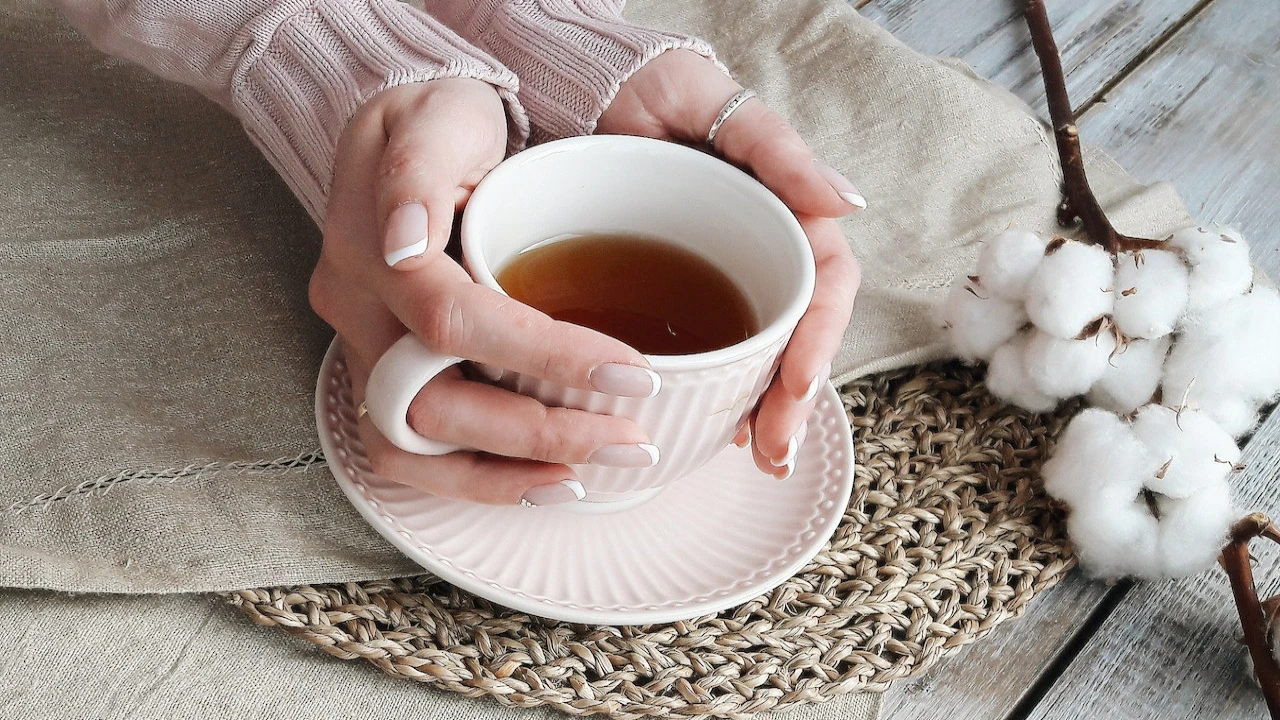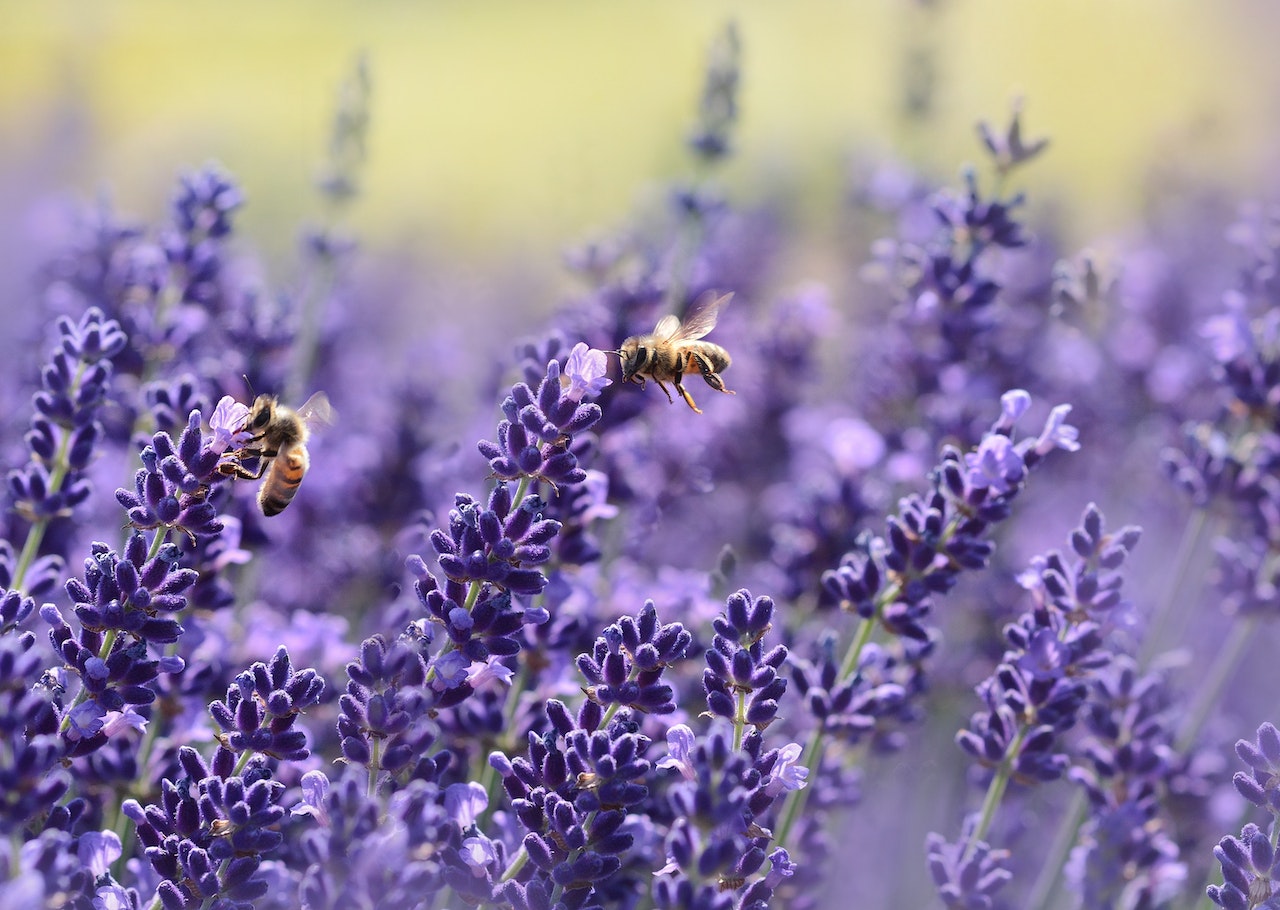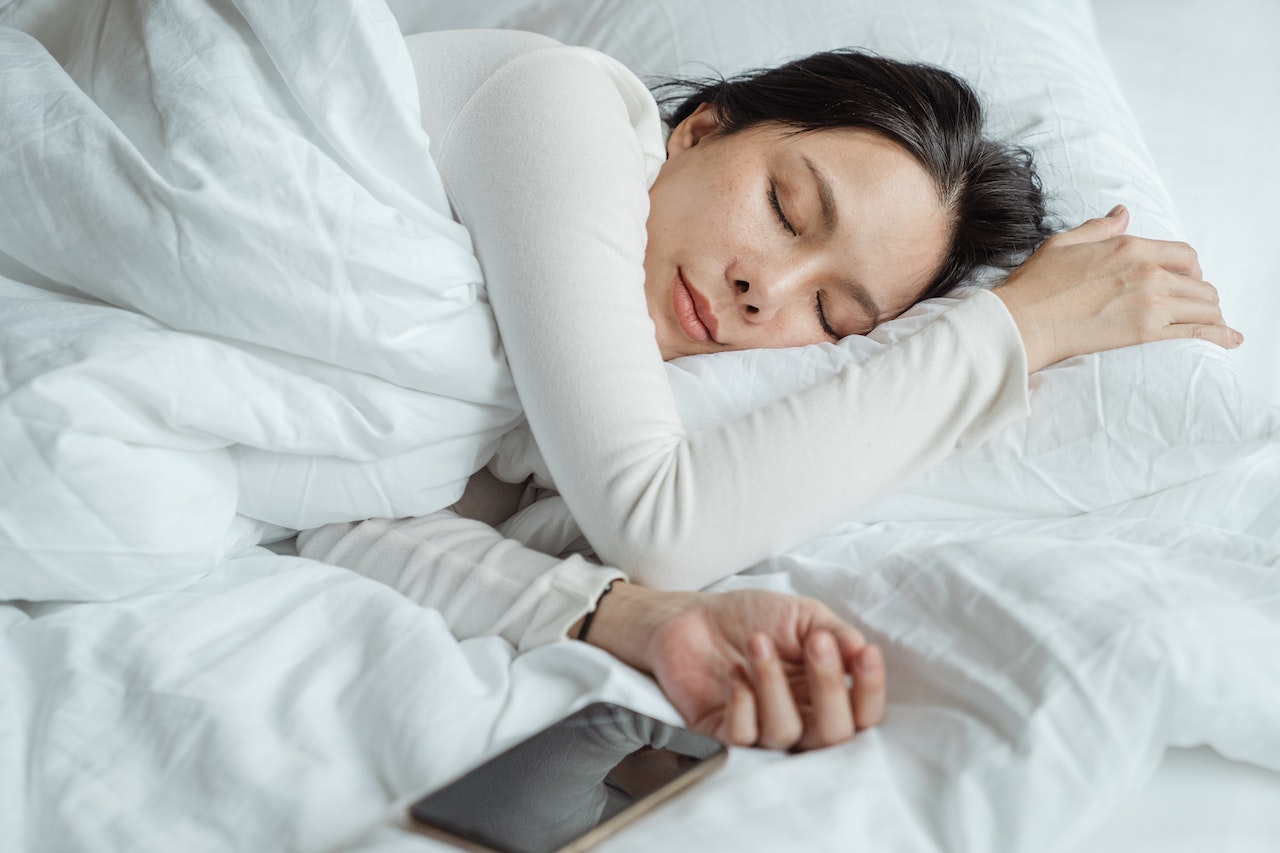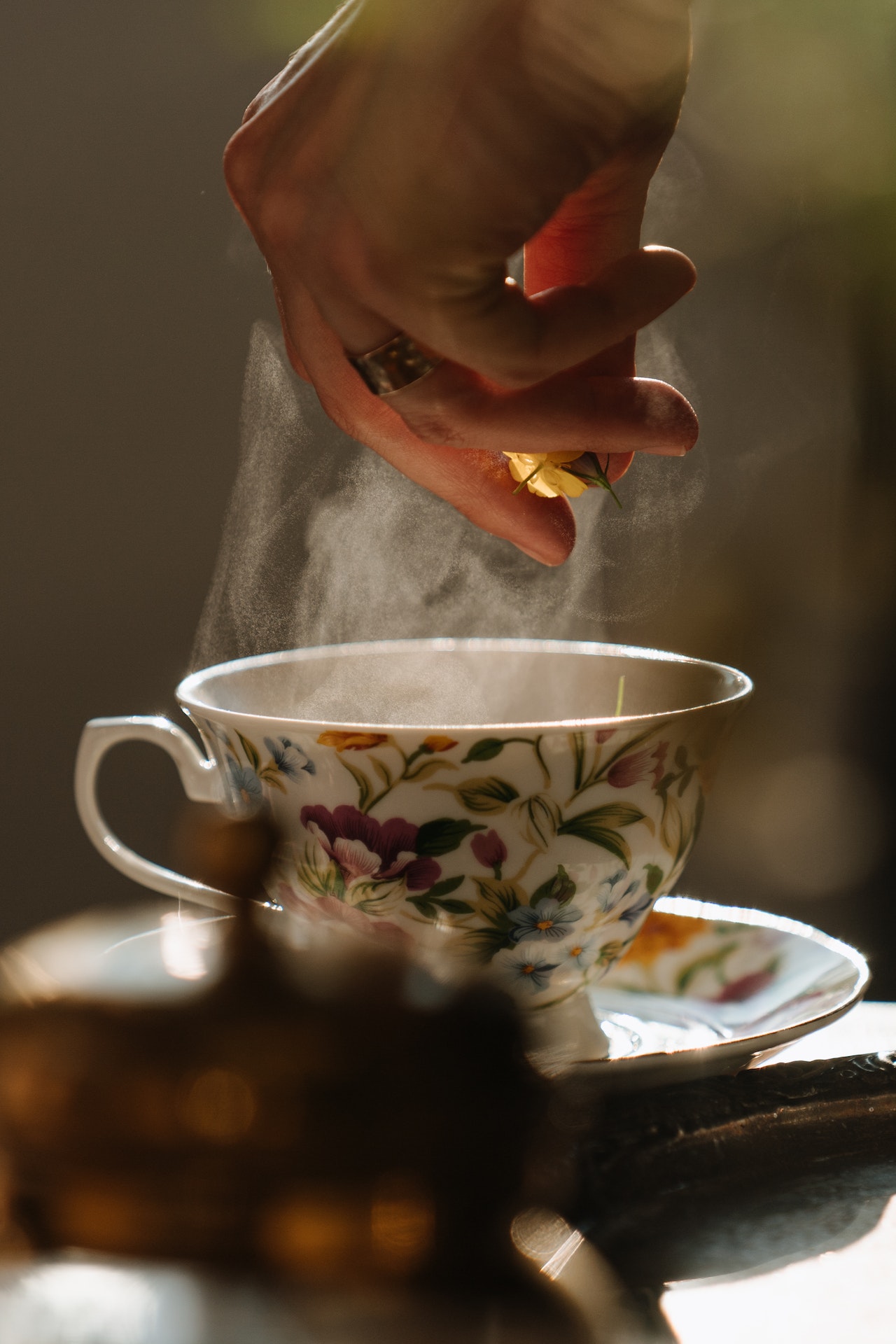Lavender Tea: 10 Great Benefits And Side Effects to Look out for
Unlock the power of lavender tea with its incredible benefits for sleep, stress relief, and overall well-being. But be aware of some potential side effects.

Lavender tea is not just any other herbal brew; the tea prepared from the buds of Lavandula angustifolia has a delightful fragrance and benefits your body inside-out. Lavender, renowned for its calming properties, helps relieve anxiety and relax your nerves. It is also thought to help with sleepless nights and lead to better skin health. From improving sleep quality to aiding digestion and providing antioxidant protection, the benefits of lavender tea have a wide range of positive effects. However, like any other herbal remedy, this herbal tea could have potential side effects if not taken care of. Be it a rainy day or a cozy winter morning, you may not want to miss out on lavender tea after knowing its amazing benefits. But it is always advised to consume it in moderation.
What Is Lavender Tea?

Lavender tea is made from the dried flowers or buds of the lavender plant, scientifically known as Lavandula angustifolia.
The plant is grown primarily on Mediterranean soil but has also gained traction in other parts of the world. With its nature of growing under sharp sunlight, lavender is successfully cultivated in France, Bulgaria, England, Spain, and the United States.
Ever since ancient times, lavender has been used as a healing brew. Not only that, but it was also used as a medicinal plant by the Greeks, Romans, and Egyptians because of its therapeutic properties. While it was not exactly used as a lavender tea back then, it was definitely in anyone's medicinal cabinet
Herbalists and monks in Europe commonly used lavender tea to treat various ailments, such as headaches, digestive issues, and anxiety. The calming effects of lavender tea make it a valuable remedy in times of stress and unrest.
There are originally around 39 different types of lavender found in the world. However, not all of it is edible or can be consumed as tea. The part of France where the best lavender is found in the world is Provence. The not-so-cool and not-too-hot weather of Provence gives perfect growing conditions for this herb to thrive.
While lavender tea offers numerous benefits, it is important to consume it in moderation. As per our contributor Kimberly Gomer MS, RD, LDN, lavender tea is generally safe for most healthy adults when consumed in moderate amounts. She adds, “Drinking too much tea may cause side effects including headaches, constipation, and increased appetite. It is not recommended to drink over 5 grams (0.1763 oz) daily.” As with any herbal tea, it is advisable to consult with a healthcare professional if you have any specific concerns or medical conditions before incorporating lavender tea into your routine.
According to Bella Carvosso, a Biomedical Scientist and Nutritionist, ”The "English" or "culinary" variety of lavender is the best kind to consume. It's similar to the amiable lavender that gives your cuisine a sweet taste. Thus, the best kind of lavender to use in recipes is the English or culinary variety.”
Top 10 Amazing Benefits of Lavender Tea
While you might have heard of many herbal teas, this one surely stands out among them all. Try the healing tea, and you will make it a regular practice once you know the benefits.
1. May Help Relieve Stress And Anxiety
Lavender tea is that gentle breeze of warmth that you want after a stressful work day. Well, you can surely trust what science has to say about this.
According to the studies, lavender contains compounds called linalool and linalyl acetate. This compound is known to have sedative and anxiolytic effects. As linalool and linalyl acetate interact with the stress and anxiety-producing compounds in the brain, they help calm the nervous system and promote a sense of well-being (1).
A study conducted at the University of Miami showed a noticeable increase in alpha waves, which are associated with relaxation and reduced anxiety. So, even just inhaling the lavender brew tea can significantly impact your mood and stress levels (2).
2. May Improve Sleep Quality

Relax and sleep in your bed, curling up under your blanket after drinking a warm cup of calming lavender tea. Ever since ancient times, lavender benefits have been linked to better sleep quality. Lavender helps calm the nerves and relax the brain.
There are many studies indicating better sleep quality for participants after the consumption of lavender tea every night before bed. One such study involved postpartum mothers. The study showed that the mothers enjoyed their sleep when they inhaled lavender fragrance continuously for four days a week for eight weeks (3).
3. May Help With Digestive Discomfort
Lavender tea may offer digestive benefits due to its calming properties and potential anti-inflammatory effects. The soothing nature of lavender can help alleviate stress and anxiety, which are known to negatively impact digestion. By promoting relaxation, lavender tea may indirectly support a healthy digestive system.
Lavender buds contain compounds such as linalool and linalyl acetate, which possess anti-inflammatory properties. These compounds may help reduce inflammation in the digestive system, potentially easing discomfort and digestive disturbances (4).
Furthermore, lavender's carminative properties may aid in relieving gas and bloating, providing relief for those experiencing these symptoms. While scientific research on lavender tea benefits specifically for digestion is limited, these potential benefits of lavender tea makes it a gentle and natural option to consider for supporting digestive health.
4. May Relieve Headaches

Lavender tea has been traditionally used for its potential to alleviate headaches and migraines. While scientific research on lavender tea specifically for headaches is limited, lavender is known for its calming and relaxing properties, which may contribute to headache relief.
The lavender scent benefits by processing a soothing effect on the nervous system, helping to reduce stress and tension that can trigger headaches. Inhaling the pleasant scent of lavender tea or applying lavender essential oil topically may provide a sense of relaxation and promote a calmer state of mind (5).
Additionally, lavender has mild analgesic properties that may help alleviate headache pain. It is worth noting that individual responses to lavender tea may vary.
5. May Help with Mood Swings
Lavender tea is often recognized for its potential to help with mood swings and promote emotional well-being. The calming properties of lavender can have a positive impact on mood fluctuations.
Lavender's aroma promotes a calming effect on the nervous system, promoting relaxation and reducing feelings of anxiety and stress. Drinking lavender tea can create a sense of tranquility, helping to stabilize moods and alleviate emotional ups and downs.
Lavender contains lanolin, a compound that helps calm your mind, which further deals with unstable mood swings (2).
6. May Help Improve Respiratory Health
Before putting back on your lavender tea, take a calming deep breath and let the aroma of the beautiful tea sink in. It works wonders for people with respiratory issues. The anti-inflammatory and antimicrobial properties of lavender help support the healing of the lungs and pathways.
The properties work on the chest and throat muscles to make breathing easier and reduce coughing and wheezing associated with certain conditions. The antioxidant properties of this tea may help protect against respiratory stress and inflammation (6).
7. May Improve Skin Health
You're sipping on a cup of lavender tea, and your skin is rejoicing in all its lavender-infused glory. Lavender has a few tricks up its sleeve to keep your complexion as radiant as a newborn.
In a study, researchers discovered that lavender possesses powerful antibacterial properties. It can fight against those acne-causing bacteria, leaving your skin looking as clear and pristine as a summer's day (6).
But wait, there's more to this! Lavender tea is like a cool breeze on a scorching summer day for inflamed skin. It has anti-inflammatory powers that can calm down redness and soothe irritated skin.
As if that wasn't enough, lavender tea brings antioxidants to your skin. These help keep wrinkles and fine lines at bay.
So, sip on that lavender tea, embrace the magic of lavender, and let your skin bask in its enchanting powers.
8. May Help with Menstrual Cramps

Has menstrual cramping ever gotten less painful? Well, lavender can help you with that. The linalool and terpenes present in lavender have anti-inflammatory effects along with analgesic properties.
This sweet, lavender herbal tea soothes your pelvic muscles, reduces inflammation, and calms your body. Can’t believe it? Yes, all the awesomeness in one cup of herbal tea.
Studies have shown that women who inhaled the lavender scent for 30 minutes in the first three days of their menstrual cycle suffered less pain than the other group who did not. Of course, the pain threshold levels and intensity of pain vary completely in all women; hence, if your cramps are less frequent, a cup of tea could make them go away, and if they are frequent and intense, lavender herbal tea may ease them (7).
9. May Strengthen Immune System
Lavender tea contains compounds like flavonoids and antioxidants that can lend a helping hand to your immune system's superhero squad. The compounds in lavender tea act like a shield against free radicals that try to wreak havoc on your immune cells. They swoop in like caped crusaders, neutralizing those pesky free radicals and keeping your immune system healthy (8).
That’s not all yet; lavender tea also boasts antimicrobial properties, which means it may help fend off those bacteria and viruses that dare to challenge your immunity. It's like having a trusty sidekick in the fight against illness!
10. May Promote Heart Health
First, let's mention blood pressure, the heartbeat of heart health. Lavender, with its calming influence, may help relax those blood vessels, promoting healthy blood flow and maintaining optimal blood pressure levels. It's like giving your heart a gentle massage, allowing it to beat with ease (9).
Low-density cholesterol levels decrease as you sip a warm cup of lavender tea each day. This means lower chances of having bad cholesterol accumulate in the vessels, which also prevents arterial infections. This further avoids related heart diseases like atherosclerosis and cardiovascular diseases.
Possible Side Effects of Lavender Tea
Lavender tea is generally considered safe for most people when consumed in moderation. However, there are precautions to be taken care of.
Lavender side effects can be severe, and may cause more harm than good. Here are the five most common side effects.
1. Gastrointestinal Issues
Some people who drink lavender tea may experience digestive problems including nausea, vomiting, diarrhea, or an upset stomach. These adverse reactions are often minor and short-lived, although they might happen in sensitive individuals or when ingested in high amounts.
2. Allergies
Some people may have a lavender allergy. Allergic reactions to lavender tea can manifest as skin rashes, itching, hives, or difficulty breathing. In the event of an allergic reaction, medical care should be taken (10).
3. Hormonal Imbalance
Lavender tea contains compounds that have weak estrogenic properties. While this is generally not a concern, excessive consumption or prolonged use of lavender tea may potentially disrupt hormonal balance, especially in individuals with hormone-sensitive conditions. Hence, it is not recommended for teenage boys and pregnant women (11).
4. Sedation And Drowsiness
Lavender tea is known for its calming and relaxing effects. While this is often desired, it may cause excessive drowsiness or sedation in some individuals. If you are planning to operate machinery or drive a vehicle, it's best to avoid consuming lavender tea close to those activities (12).
5. Drug Interactions
Lavender tea may interact with certain medications, including sedatives, antidepressants, and blood thinners. If you are taking any prescription medications, it's important to consult with a healthcare professional before regularly consuming lavender tea to avoid potential interactions (13).
Remember that lavender side effects are relatively rare, and most people can enjoy lavender tea without experiencing any adverse effects. If you have any concerns or pre-existing health conditions, it's always best to consult a healthcare provider before adding new herbal teas to your routine.
Tips for How to Brew Lavender Tea
To get the best benefits of lavender tea, it is necessary to do the brewing the right way.
Below are the tips to get the perfect aromatic, healthy lavender tea.
- Select dried culinary-grade lavender flowers for brewing tea. These are specifically grown and processed for culinary use and are free from pesticides or other contaminants.
- Start with a teaspoon of dried lavender flowers per cup of water. Adjust the quantity based on your personal preference for the strength of the tea.
- Bring fresh, filtered water to a boil. Lavender tea is typically brewed with hot water, but you can also make cold-infused lavender tea by steeping the flowers at room temperature or in cold water overnight.
- To keep the tea warm for longer, preheat your teapot or cup by rinsing it with hot water before adding the lavender.
- Let the lavender steep into hot boiling water for at least 5-10 minutes.
- You can also add other flavors like mint, chamomile, honey, and lemon.
- To maintain the freshness and potency of your dried lavender flowers, store them in an airtight container away from direct sunlight and moisture.
Lavender Tea Recipe

Ingredients
- 1 teaspoon dried culinary-grade lavender flowers
- 1 cup water
- Optional: honey or lemon, to taste
Instructions
- Boil 1 cup of water in a kettle or saucepan.
- While the water is heating, measure 1 teaspoon of dried culinary-grade lavender flowers.
- Preheat your teapot or cup by rinsing it with hot water.
- Place the lavender flowers in a tea infuser or directly into the teapot or cup.
- Pour the hot water over the lavender flowers.
- Let the lavender stay in the hot water for about 5-7 minutes. Adjust the steeping time based on your desired strength.
- Once steeped, remove the tea infuser or strain the tea to separate the lavender flowers.
- If desired, add honey or lemon to taste for a touch of sweetness or acidity.
- Give it a gentle stir and your lavender tea is ready to be enjoyed!
Note: Feel free to experiment with the lavender quantity and steeping time to achieve your preferred flavor and strength. You can also try adding other complementary herbs or flavors to customize your lavender tea.
Conclusion
In a nutshell, lavender tea is like a delightful sip of relaxation with a hint of caution. It packs an impressive punch of benefits that can make your daily routine bloom, but it also comes with a few side effects that might rain over your expectations. Sipping on lavender tea can transport you to a state of calmness, reducing stress and anxiety like a soothing lavender-scented bubble bath for your soul. It's an herbal remedy for headaches and can even make you sleep like a baby. The antioxidant powers fight off the antigens, helping to keep your immunity strong.
However, just like any other medicine, lavender tea too has its side effects. Some people may experience allergic reactions, so be sure to keep an eye out for any unexpected sneezes or itchy situations after sipping the brew. It can also mess with your hormones, so if you're already juggling hormonal swings, it's best to chat with a healthcare professional first. And watch out for any meddlesome interactions with your medications—lavender tea might not play well with others. With a little knowledge and a dash of lavender-infused mindfulness, you can make the most of this fragrant tea and sip your way to a blooming sense of well-being.
Contributor: Kimberly Gomer MS,RD, Director of Nutrition at Body Beautiful Miami
Source
1. The effect of lavender herbal tea on the anxiety and depression of the elderly: A randomized clinical trial
https://www.sciencedirect.com/science/article/abs/pii/S0965229919316292
2. Lavender and the Nervous System
https://www.ncbi.nlm.nih.gov/pmc/articles/PMC3612440/
3. Lavender Fragrance Essential Oil and the Quality of Sleep in Postpartum Women
https://www.ncbi.nlm.nih.gov/pmc/articles/PMC4443384/
4. Anti-inflammatory activity of linalool and linalyl acetate constituents of essential oils
https://pubmed.ncbi.nlm.nih.gov/12587692/
5. Lavender essential oil in the treatment of migraine headache: a placebo-controlled clinical trial
https://pubmed.ncbi.nlm.nih.gov/22517298/
6. ?? Anti-inflammatory and analgesic properties of the leaf extracts and essential oil of Lavandula angustifolia Mill
7. The effect of aromatherapy massage with lavender oil on severity of primary dysmenorrhea in Arsanjan students
https://www.ncbi.nlm.nih.gov/pmc/articles/PMC4325408/
8. Effect of Lavender (Lavandula angustifolia) Essential Oil on Acute Inflammatory Response
https://www.ncbi.nlm.nih.gov/pmc/articles/PMC5878871/
9. Effect of Inhalation of Lavender Essential Oil on Vital Signs in Open Heart Surgery ICU
https://www.ncbi.nlm.nih.gov/pmc/articles/PMC5423266/
10. Occupational allergy to lavender oil
https://pubmed.ncbi.nlm.nih.gov/2948764/
11. Prepubertal Gynecomastia Linked to Lavender and Tea Tree Oils
https://www.nejm.org/doi/pdf/10.1056/NEJMoa064725
12. Lavender and sleep: A systematic review of the evidence
https://www.sciencedirect.com/science/article/abs/pii/S1876382012010700
13. Lavender | Michigan Medicine





 JOIN OUR WHATSAPP CHANNEL
JOIN OUR WHATSAPP CHANNEL























































